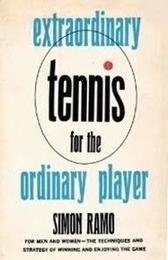
I subscribe to a blog by a man who espouses mindfulness, among other things. His most recent post described information he'd gleaned from a book about tennis written in the 1970s. The blogger wasn't interested in tennis, but he was fascinated by Dr. Simon Ramo's premise that most of us play the "loser's game," where a win is the result of the loser's actions rather than any talented play by the winners.
Contrast that with the "winner's game" played by professionals. Their game features excellent serves, intense focus and preparation for each shot, long, spectacular rallies, and brilliant recoveries. In time, someone takes a risk and attempts a put-away shot or precisely targets a shot that's unrecoverable. At this level, winning points—rather than making mistakes—determines the outcome of the game.
I'm assuming you're an amateur pickleball player, if you've read this far. What advice can you take away from Dr. Ramo's words?
Whether you want to win more amateur games or become a pro, your strategy should be to recognize and then eliminate the costly errors that defeat you. In the long run, doing this will benefit you far more than learning how to make that super shot down the sideline.
To learn more, pick up a copy of Dr. Simon Ramo's book, Extraordinary Tennis for the Ordinary Player. (Many libraries shelve it.) His wisdom can benefit nearly any endeavor, not just pickleball. For a shorter read, check out an article from the New York Times that gives some insight into Ramo, the man, and excerpts some the concepts from his book.

 RSS Feed
RSS Feed